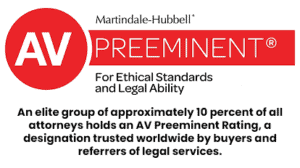Florida taxpayers would be shocked to learn 102,000 inmates reside in our state prison system, untold thousands more in federal prisons and county jails, and 153,000 felons on criminal probation.
Why should Floridians pay attention to clemency laws? Well, besides the public safety concerns and taxpayer costs, Floridians have a vested interest to assist felons who want to re-enter society become law-abiding citizens and ensure they stay on the straight and narrow path. One way to assist felons, known as "executive clemency," provides the governor and the Cabinet the vested authority to restore the rights of felons. Simply put, clemency means an act of mercy that absolves the individual from all or any part of the punishment that the law imposes.
Gov. Rick Scott and the Cabinet recently approved new clemency rules to require specific waiting periods to restore civil rights of felons and to enforce a strict 10-year waiting period for full pardons. Clemency approval will assist felons to obtain certain jobs, business or professional opportunities, state licenses, bonds, government contracts and/or security clearances.
Specifically, the restoration of civil rights "restores to an applicant all of the rights of citizenship - voting, serving on a jury, and seeking elected office - in Florida enjoyed before the felony conviction, except the specific authority to own, possess or use firearms."
The clemency board meets four times per year in Tallahassee to hear public testimony and vote on clemency applications. To obtain clemency, the applicant must receive approval by the governor and two Cabinet members. The board will consider these six factors when determining whether to grant an applicant clemency: (1) the nature of the offense; (2) whether the applicant has any history of mental instability, drug or alcohol abuse; (3) whether the applicant has any subsequent arrests, including traffic offenses; (4) the applicant's employment history; (5) whether the applicant is delinquent on any outstanding debts or child support payments; and (6) support or opposition letters.
Conversely, a full pardon unconditionally releases a person from punishment and forgives guilt for any Florida conviction. It restores all of the rights of citizenship possessed by the applicant before his or her conviction, including the right to own, possess, or use firearms. At least 10 years must pass since the felon completed their sentence.
Additionally, Attorney General Pam Bondi supported a new law to "de-couple" state licenses from RCRs unless the felony conviction is "directly related" to the desired license. Gov. Scott signed this decoupling law, but the key will be how state agencies implement it.
The new rules create two distinct categories of eligibility for restoration of civil rights. Most applicants will need to wait five years after conclusion of prison or probation to be eligible, must affirmatively submit an application, and they can be approved without a hearing. Felons convicted of 35 of the most serious crimes must wait seven years and must be approved at a hearing. As before, the applicant must complete their sentence and conditions of supervision, pay restitution, have no outstanding detainers, and not have any new arrests or convictions.
The next clemency meeting is Thursday, Sept. 22 at the Capitol. I encourage every Floridian to learn more about the clemency and civil rights restoration process.

